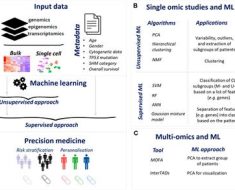
By Kenna Hughes-Castleberry posted 21 Dec 2023
Quantum News Briefs: December 21, 2023:
QuSecure launches QuProtect Post-Quantum Cryptography cybersecurity software in AWS Marketplace

QuSecure™, Inc., a leader in post-quantum cryptography (PQC), announced the availability of its cybersecurity software QuProtect™ in the AWS Marketplace. This move is a significant milestone for both QuSecure and the PQC market, offering advanced security solutions to organizations of various sizes. QuProtect, designed to address the vulnerabilities of traditional encryption against AI and quantum computing threats, provides quantum-resilient technology for network, cloud, IoT, edge devices, and satellite communications. Its inclusion in AWS Marketplace facilitates global access to state-of-the-art PQC solutions, simplifies procurement, and allows for flexible licensing and timely support. Dr. Garrison Buss, CSO of QuSecure, emphasized the importance of AWS Marketplace in expanding their presence and aiding organizations in adopting orchestrated post-quantum cryptography. Dr. Brian Lottman, Senior Director for Program Management, highlighted the alignment of this move with QuSecure’s mission to provide crypto-agile tools for digital asset protection. QuSecure safeguards data in various sectors, including banking, healthcare, and defense, against quantum and classical cybersecurity threats.
Quantum Xchange of Bethesda joins national cryptography project consortium

Bethesda-based Quantum Xchange has announced its collaboration with the National Cybersecurity Center of Excellence (NCCoE) as part of the Migration to Post-Quantum Cryptography Project Consortium. This initiative aims to raise awareness of the challenges in transitioning to the National Institute for Standards and Technology (NIST) post-quantum cryptography standards and to develop practices for replacing current public-key algorithms with NIST-standardized post-quantum algorithms. The project addresses the lack of a universally accepted approach for updating cryptographic standards and technologies to be quantum-resistant. It will initially focus on demonstrating discovery tools that automate the identification of public-key cryptography use across various technologies, particularly in data centers, on-premises, and cloud-based systems. This effort is crucial for identifying quantum-vulnerable cryptographic code and dependencies, ensuring preparedness for quantum-safe cryptography implementation in diverse operational environments.
Zapata AI’s Research in Quantum-Enhanced Generative AI Published in Nature Communications

Zapata Computing, Inc. (“Zapata AI”), an Industrial Generative AI company, has published significant research in the prestigious journal Nature Communications, revealing how quantum and classical techniques can synergistically enhance generative AI. The paper, titled “Synergistic pretraining of parametrized quantum circuits via tensor networks,” showcases the integration of quantum circuits with classical generative AI, offering advantages unattainable by either method alone. This research, led by Zapata AI’s team, including Jacob Miller and Jing Chen, demonstrates the potential of quantum-enhanced AI in enterprise applications, such as compressing large models, speeding up calculations, and producing higher-quality outputs. The study counters the notion of competition between quantum and classical technologies, highlighting their collaborative potential in solving complex computational problems and overcoming optimization challenges in quantum computing. This synergistic approach, underlined by tensor networks, marks a significant step forward in realizing the full potential of current quantum technologies.
In Other News: Yahoo Finance article: “Quantum Computing Market size growing with a CAGR of 35.20%: Growth Outlook from 2022 to 2030, projecting market trends analysis by Application, Regional Outlook, and Revenue”

According to a recent Yahoo Finance article, the Quantum Computing Market is forecasted to experience significant growth, expanding from USD 235.50 Million in 2022 to USD 1944.60 Million by 2030, at a Compound Annual Growth Rate (CAGR) of 35.20%, according to a report by PRIMEIQ RESEARCH (OPC) PRIVATE LIMITED. This growth is driven by the increasing application of Quantum Computing in various sectors such as Defense, Banking and finance, Energy and power, Chemicals, Healthcare, and pharmaceuticals. The market research report highlights the diverse types of Quantum Computing – Simulation, Optimization, and Sampling – each serving specific application domains. Geographically, the market spans major regions like North America, Asia-Pacific, Europe, the USA, and China, reflecting its global adoption and interest. The report also emphasizes the importance of regulatory and legal factors in shaping the Quantum Computing market landscape. Key companies like D-Wave Systems, 1QB Information Technologies, QxBranch LLC, QC Ware Corp, and Google’s Quantum AI lab are leading the market with innovations in quantum annealing, machine learning, software solutions, and cloud services. The Quantum Computing market is poised for exponential growth, driven by technological advancements, increased collaboration, and a broadening range of applications.
In Other News: The Hill article: “If countries are serious about climate change, they should get serious about quantum computing “

At the COP28 Conference in Dubai, amidst discussions on the pressing issue of climate change, there was a growing recognition of the potential role of quantum computing in achieving climate goals, an opinion piece by The Hill highlights. The conference highlighted the necessity of implementing strategies to limit global warming to 1.5°C by 2050, focusing on green energy technologies like electric vehicles, carbon capture, and climate-resilient agriculture. However, the high costs and limitations of current green technologies and the slow pace of scientific research pose significant challenges. Quantum computing, by leveraging the principles of quantum physics, offers a promising solution. Its capability to rapidly solve complex problems can accelerate advancements in critical areas such as battery efficiency, electric vehicle charging, eco-friendly fertilizer manufacturing, and more efficient solar cells and wind turbines. Despite its current limitations, quantum computing shows potential in expediting breakthroughs in green technology and supporting global climate objectives. The COP28 conference emphasizes the importance of integrating quantum computing into the fight against climate change and encourages collaboration between quantum and sustainability experts to realize the technology’s transformative potential fully.
In Other News: National Defense article: “Quantum Science Finding its Way Into Satellite Technology”

A recent National Defense article highlights that at the Dubai Airshow’s Space Pavilion, experts discussed the real-world applications of quantum technology in space systems, moving beyond its science fiction associations. Sana Amairi-Pyka, a lead scientist in quantum communications, emphasized that quantum technology is already being utilized in space. Quantum mechanics, which deals with particles and waves at the atomic and subatomic levels, offers advancements in computing and sensing. Quantum computing, for instance, uses qubits for faster and more effective processing. Markus Krutzik from the Ferdinand-Braun-Institut highlighted the development of optical clocks and quantum sensors for space operations, enhancing navigation accuracy and overcoming GPS vulnerabilities. Quantum sensors can detect changes in motion and electric and magnetic fields with high precision. The potential applications of this technology in space are vast, including improved navigation, enhanced security, and efficient gravity mapping for identifying energy sources. Alexander Ling from the National University of Singapore discussed the deployment of quantum technology in Singapore for gravity mapping, which could potentially be used in space. James Grieve, director of quantum communications, underscored the importance of quantum random number generators in cybersecurity, a field with immense potential in space. The Technology Innovation Institute is developing quantum key distribution and a ground station for global quantum networks to bolster communication security. The report underscores the collaborative effort needed to advance quantum technology in space, emphasizing the importance of standardization and government support in transitioning these technologies to the private sector.
Kenna Hughes-Castleberry is the Managing Editor at Inside Quantum Technology and the Science Communicator at JILA (a partnership between the University of Colorado Boulder and NIST). Her writing beats include deep tech, quantum computing, and AI. Her work has been featured in Scientific American, Discover Magazine, New Scientist, Ars Technica, and more.




